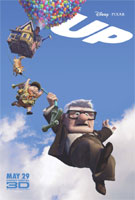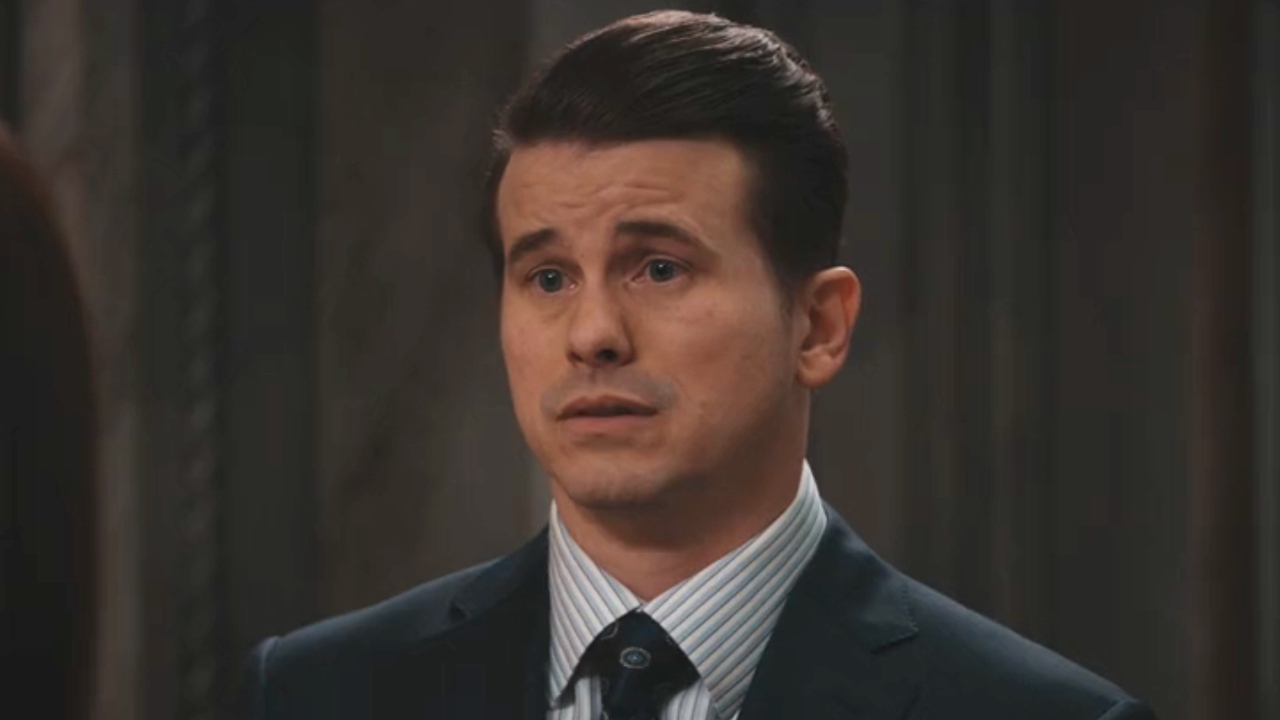Perhaps 50 years from now, when this current golden age of Pixar animation has finally dried up, we'll be able to look back and rank the pictures, somehow figuring out that Finding Nemo is better than The Incredibles, and that Toy Story reigns supreme above them all. But for now, every time Pixar blesses the movies with another gem, all we can do is sit back, relish it, and be grateful.
So is this summer's Up better than last summer's Wall-E? I couldn't tell you. But it's yet another careful, cleverly told story, full of heart and ambition and all the good things adventures are made of, and as gorgeous as anything, animated or not, you'll ever see onscreen. Viewed in 3D-- which you really, really ought to do if you get a chance-- the bright colors of the first half shimmer, while the vertiginous cliffs and flights of the second half send shivers. And for anyone who thinks this is just a goofy story about an old man and a kid and a talking dog, know that this PG-rated children's movie addresses infertility, death, single parenting, loss of childhood illusions, and the necessities of respecting nature. Oh, and the ever-present plague of dogs who are fighter pilots.
But that's jumping ahead. Up opens when young Carl meets young Ellie, each of them huge admirers of the Lindbergh-esque explorer Charles Muntz (Christopher Plummer). Quiet Carl is instantly dazzled by the loquacious Ellie, who lays out her plan to one day live at South America's famed Paradise Falls. In the tender, expertly crafted montage that follows, we see how those plans get derailed by Carl and Ellie's subsequent life together, from quotidian inconveniences to their discovery that they can't have children. Ellies dies and Carl is left an old man voiced by Ed Asner, a widower who has lost the love of his life and camps out in his house, surrounded by modern construction, as alone as an explorer lost at sea.
When Russell (Jordan Nagai), a roly-poly Asian kid, arrives at Carl's door hoping to earn his Wilderness Explorer Assisting the Elderly badge, he doesn't seem likely to be the one to draw Carl out of his cranky shell. But Russell becomes an accidental stowaway when Carl busts out his escape plan, leashing his house to millions of bright balloons and floating away, blowing a raspberry to the developers and the suits who were trying to take the house away from him. Carl has a moment of peace, telling a photo of Ellie that they're off on their adventure, before a bewildered Russell knocks on the door and begs to come in. After a wild storm that deliberately evokes The Wizard of Oz, Carl and Russell are almost magically delivered at Paradise Falls-- just a few miles away from the exact spot where Ellie dreamed of living so many years ago.
Russell and Carl tether themselves to the still-floating house and continue their journey on foot, which of course, is where the real adventure begins. They meet Dug (Bob Peterson), a dog who can talk through his electronic collar, but is not bright enough to say much more than "You are my master" and "I love you." There's also Kevin, a brightly colored squawker of a bird who immediately takes to Carl and Russell, evan as Carl wishes all three of his compatriots would go away. Elsewhere in the jungle are a pack of meaner dogs, led by the aptly named Alpha (Peterson again), who along with Dug belong to the spry old Muntz (Christopher Plummer), still out in the jungle after all these years in search of his greatest discovery yet.
The movie that started as a deceptively simple lark develops into a full-fledged adventure story, as Muntz is revealed to be less than the hero Carl imagined, and both human and animal leads are called upon to offer bravery and compassion in equal measure. And even though the story doesn't lag for a moment, we get to know Russell and Carl as more than a vastly mismatched pair of adventurers. Russell isn't just an energetic kid; he's plump, lonely and fatherless, clinging to the Wilderness Explorer badges in hopes that dad will be proud enough to return home. And Carl-- have we ever had an animated character as complex as Carl? He starts the movie hellbent on recapturing a dream, literally burdened by his past, but ends up somewhere quite different. It's not just that the adventure opens him up to the world, but Carl makes the choice, an anti-hero realizing the time has come for him to step up. We realize what he must do long before he does, but it's no less remarkable to watch this old man make the decision to change his life, his way of seeing the world, one last time.
The movie's visual style is simple in the way that Modernist paintings were, the result of people who have mastered the standard and can now reduce it from there. Carl and Russell are more cartoonish humans than the ones we met in Ratatouille or The Incredibles, but they're beautifully expressive, Russell's open round face captures every excitement and vulnerability of childhood, while Carl's squashed square body evokes a man literally pushed down by life. It all seems strangely well-suited to 3D, which has a way of absorbing you in this cartoony world while never feeling like a gimmick. The visuals are matched beautifully by Michael Giacchino's lyrical, lilting score, based on a simple waltz theme that represents both Carl and Ellie's lifelong love and the journey Carl takes to move on from it.
Up is blessed by Pixar's signature comic timing and grip on sentimentality; there are two distinct points in the film in which the audience is audibly weeping, but also the right amount of levity, and even a poop joke, which I think is a first for Pixar. The movie is surely less ambitious than Wall-E, showing a mastery of animation and storytelling rather than a desire to push it all forward. But for a story well told, an adventure with genuine thrills and a heartbreakingly believable love story, there's not much better than Up. It all comes down to that striking poster image of the house tethered to balloons, floating in a serene blue sky. Up fulfills its promise of carrying you away.
Staff Writer at CinemaBlend












